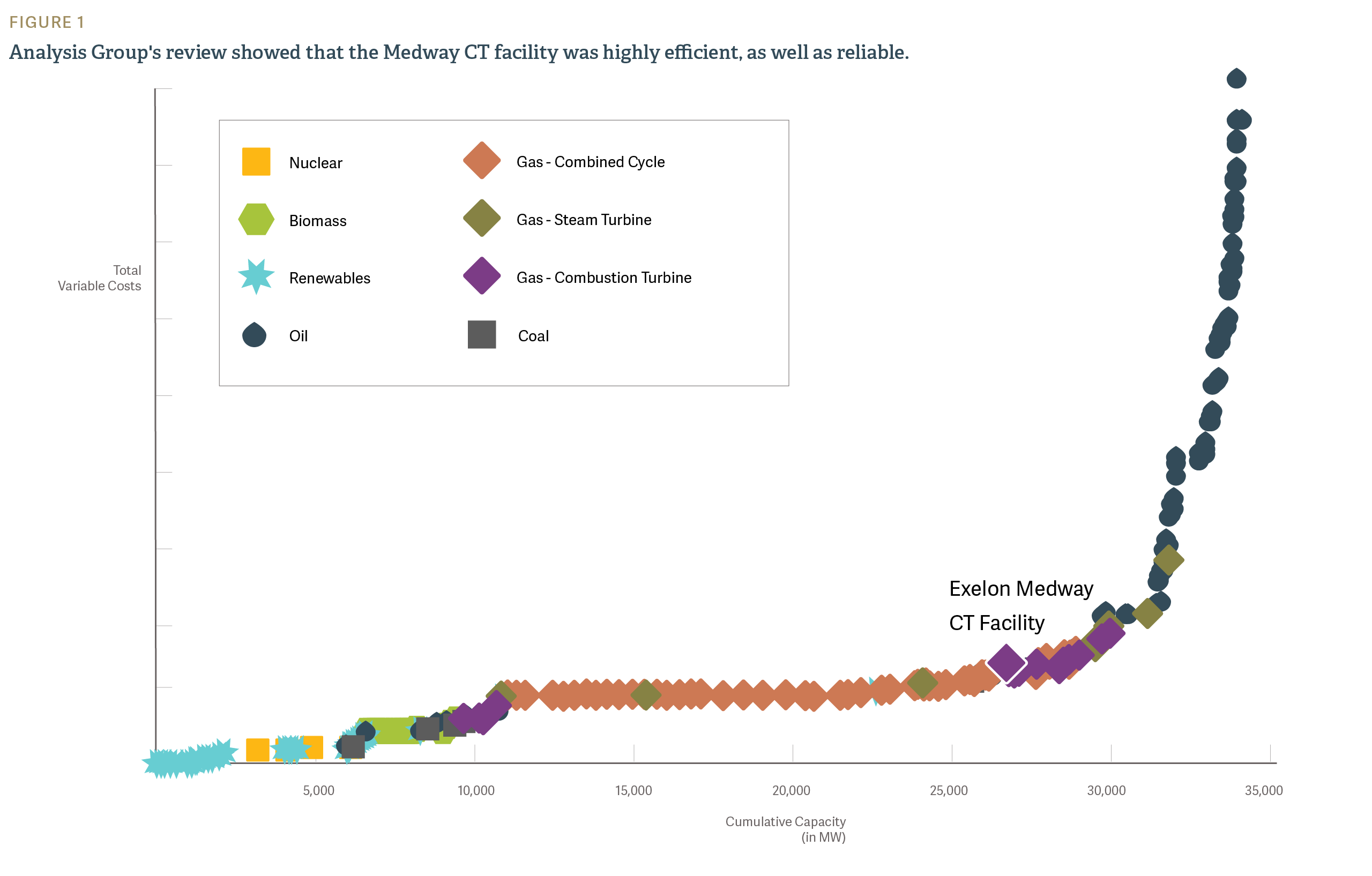-
Performance and Economic Analyses to Support the Siting Approval of a New Natural Gas Peaker Plant
New England's increasing use of renewables – both historically and in the future – increases the value of adding more fast-reacting power plants that can quickly ramp up and down as the renewable output changes from minute to minute and hour to hour. Thus, as some of the older generating assets in the region retire due to poor economics, replacement with resources that help integrate renewable resources can create benefits for the region.
The capacity market in New England has evolved to provide additional incentives for resources that can be counted on during all load periods, such as summer and winter peak periods. The region’s grid operator (ISO New England, or ISO-NE) now solicits the development of new capacity on a localized basis in annual Forward Capacity Auctions. In principle, these incentives support the development of new, fast-reacting plants able to flexibly provide supply under many operating conditions.
Nevertheless, the development of additional energy infrastructure in a populous region (particularly close to the loads in Southern New England) creates numerous challenges, and it can be difficult for developers to make the case before regulators to approve the siting of specific power plant infrastructure projects in the region. Against this backdrop, the diversified energy company Exelon engaged Analysis Group to provide analysis and testimony in support of its application to construct a 200 MW, highly efficient natural gas combustion turbine (CT) plant in Medway, Massachusetts.
The Analysis Group team, led by Senior Advisor Susan Tierney and including Managing Principal Pavel Darling, first made a “Technology Performance Standard” (TPS) assessment (as required by the Massachusetts Energy Facilities Siting Board) to compare the Medway technology (LMS 100) with other generation technologies capable of providing similar functions to the grid (e.g., energy, capacity, and quick-start and fast-ramping capability). The TPS review showed that Exelon had chosen the most efficient CT available in the commercial market (see figure), and that its dual fuel capability allowed it to provide a reliable supply of energy throughout peak summer and winter periods (e.g., when there might be constraints on the gas-delivery system into the region).
 Dr. Tierney and Mr. Darling also conducted both qualitative and quantitative analyses to determine whether the plant was consistent with the state’s energy and environmental policies, and in particular with the Massachusetts Global Warming Solutions Act. Their analyses included a qualitative review of policy developments, as well as a quantitative analysis showing the greenhouse gas impacts of including the Medway unit in the New England system operations. Given the Medway facility's highly efficient operational characteristics, the Analysis Group authors found that it would displace output (and related higher carbon emissions) at less-efficient and higher-emitting resources that were also more costly to operate.
Dr. Tierney and Mr. Darling also conducted both qualitative and quantitative analyses to determine whether the plant was consistent with the state’s energy and environmental policies, and in particular with the Massachusetts Global Warming Solutions Act. Their analyses included a qualitative review of policy developments, as well as a quantitative analysis showing the greenhouse gas impacts of including the Medway unit in the New England system operations. Given the Medway facility's highly efficient operational characteristics, the Analysis Group authors found that it would displace output (and related higher carbon emissions) at less-efficient and higher-emitting resources that were also more costly to operate.Exelon's successful application for this proposed CT plant illustrates the importance of being able to leverage a thorough understanding of regulatory contexts and policy to make arguments in conjunction with rigorous modeling capabilities, such as the in-house proprietary models we applied in the Medway analyses. Analysis Group's energy experts are experienced in all facets of the siting process, ranging from preliminary scoping support, to intermediate analyses in support of community outreach, to expert testimony. ■
This feature was published in June 2017 and is associated with our Energy Infrastructure page.

